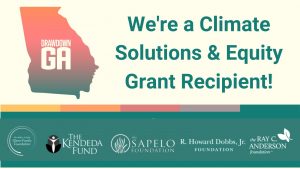Resource Center
General Contractors License in Georgia
RESIDENTIAL BASIC CONTRACTOR
Residential-Basic Contractor (contractor work that is relative to detached one-family and two-family residences and one-family townhouses not over 3 stories in height)
RESIDENTIAL-LIGHT COMMERCIAL CONTRACTOR
Residential-Light Commercial Contractor (you can do the same work as a Residential-basic contractor, plus you can perform contractor work or activity that is related to multi-family and multi-use light commercial buildings and structures)
GENERAL CONTRACTOR
General Contractor (this is industrial commercial work and is unlimited as to type of work except work which falls under Chapter 14 of this title, which may not be performed by the GC unless he or she possess licensure to do such)
For more information please visit the State Licensing Board for Residential and General Contractors
Specialty Trades Licenses in Georgia
The Georgia Secretary of State is the governing body that approves and affords licenses to specialty occupations across the State. Some of these trades fall into the construction segment, and here are the links to find out more how to obtain a Specialty Trade License in the State of Georgia.
Minority Certifications
Federal, state, and local governments offer billions of dollars in contracting opportunities, and many are required, by law, to award a percentage of contracts to small businesses.
Certifying your business can help you successfully compete for government contracts.
Your small business may be able to become certified as a:
–Small Business based upon SBA size standards
–Minority Business Enterprise (MBE)
–Women Business Enterprise (WBE)
–Women-Owned Small business (WOSB)
–Veteran-Owned Small business (VOSB)
–Service-Disabled Veteran-Owned Small business (SDVOSB)
–Disadvantage Business Enterprise (DBE)
–City/County
–Lesbian, Gay, Bi-sexual, Transgender Business Enterprise (LGBTBE)
There are 5 primary outlets:
1. Federal
2. State: State Governments and DOTs
3. Local: City or County Governments
4. Corporate: National and Regional Councils
5. Consultants/Specialty Company: Assistance Centers
Types of Certification & Criteria
Minority Business Enterprise (MBE):
A minority-owned business is defined as being owned, capitalized, operated and controlled by a minority or group of minorities. For the purposes of *NMSDC’s program, a minority group member is an individual who is at least 25% of Asian, African American, Hispanic or Native American descent. Minority eligibility is established via a combination of screenings, interviews and site visits.
- Asian Pacific:Origin in Japan, China, the Philippines, Vietnam, Korea, Samoa, Guam the US Trust Territory and Pacific Island, the Northern Marinas Islands, Laos Kampuchea (Cambodia), Taiwan, Burma, Thailand, Malaysia, Indonesia, Singapore, Brunei, Republic of the Marshall Islands, or the Federated States of Micronesia.
- Asian Indian:Origins in India, Pakistan and Bangladesh
- African American: Who are of African descent
- Hispanic:Citizens of true-born Hispanic heritage, from any of the Spanish-speaking areas of the following regions: Mexico, Central America, South America and the Caribbean Basin only. Citizens with origin in Spain or Portugal are NOT eligible
- Native American:American Indianan, Eskimos, Aleuts and Native Hawaiians
Criteria for MBE Certification:
- United States citizenship
- Minority businesses must be at least 51% minority-owned operated and controlled. Ownership, in the case of a publicly-owned business, means that at least 51% of the stock is owned by one or more minority group members.
- Must be a for profit enterprise and physically located in the U. S. or its trust territories.
- Management and daily operations must be exercised by the minority ownership member(s).
Women Business Enterprise(WBE):
A woman-owned business is defined as being owned, capitalized, operated and controlled by a woman or group of women. The business must be a “for-profit” business which physically resides in the United States or one of its territories.
Criteria:
- Fifty-one percent (51%) established ownership by a woman or a group of women
- Woman owner must be a U.S. citizenship or legal resident
- Evidence or proof of 51% majority (active) control and effective management, daily operations of the business as evidence by the governing documents such as by-laws, hire-fire authority, signature and other decision-making roles
- Ownership of women must establish their expertise in area they are seeking certification
- Woman owner must serve as President or CEO (if both positions exist).
Women Owned Small Business(WOSB):
The WOSB is a federal program that authorizes contracting officers to specifically limiting, or setting aside, certain requirements for competition solely amongst women-owned small businesses (WOSBs).
Criteria:
- A small business; and
- 51% owned and controlled by one or more women
- The ownership cannot be subject to conditions.
- United States citizenship
- Provide a service/product that is NAICS eligible (WOSB/92)
- Register in System for Award Management (SAM)
- DUNS number (Dun & Bradstreet)
Disadvantaged Business Enterprise(DBE):
The Department of Transportation *Disadvantaged Business Enterprise (DBE) program is designed to address:
- Ongoing discrimination
- The continuing effects of past discrimination in federally-assisted highway, transit, airport, and highway safety financial assistance transportation contracting markets nationwide.
*Goal and objective of the DBE program: is to level the playing field by providing small businesses owned and controlled by socially and economically disadvantaged individuals a fair opportunity to compete for federally funded transportation contracts.
Socially Disadvantaged:
Socially disadvantaged individuals are those who have been subjected to racial or ethnic prejudice or cultural bias within American society because of their identities as members of groups and without regard to their individual qualities.
Economically Disadvantaged:
"Economically disadvantaged individuals are socially disadvantaged individuals whose ability to compete in the free enterprise system has been impaired due to diminished capital and credit opportunities.“ ~SBA
Criteria:
- 51% owned by a socially and economically disadvantaged individual(s)
- The business must be a for-profit enterprise
- Physically resides in the United States or one of its territories
- Disadvantaged- You may be eligible if you are a member of a group of persons considered as disadvantaged.
- Business Size Determination- A firm (including its affiliates) must be a small business as defined by SBA standards.
- Annual gross receipts must not exceed $23.98 million in the previous three fiscal years ($56.42 million for airport concessionaires in general with some exceptions)
- Personal Net Worth- Only disadvantaged persons having a personal net worth of less than $1.32 million can be considered as a potential qualified DBE
- Independence- The business must not be tied to another firm in such a way as to compromise its independence and control.
- Day to day control and direct management decision making roles
- United States citizenship or Permanent resident
SERVICED DISABLED/VETERAN OWNED SMALL BUSINESS (SD/VOSB):
The Department of Veterans Affairs (VA) has special authority for Service- Disabled Veteran-Owned Small Business and Veteran-Owned Small Business (SDVOSB and VOSB) set-asides and sole source contracts.
The SDVOSB program provides contracting preferences for small businesses that are owned and controlled by service-disabled veterans. The program is intended to help participating federal agencies achieve the government-wide goals.
Criteria:
- The Veteran owner(s) have direct, unconditional ownership of at least 51 percent of the company.
- Have full decision making authority
- Manages the company on both its policy and day-to-day operations
- Holds the highest officer position
- Should be the highest compensated employee
- Has the managerial experience of the extent and complexity needed to manage the company
Local/Counties:
Local and County Office of Contract Compliance (OCC) effectively serves as a liaison, linking Small, Minority, Female and Disadvantaged Businesses with related business opportunities and encourages equal opportunity for all businesses and individuals.
Equal Business Opportunity Program is to mitigate the effects of past and present discrimination against women and minority businesses.
Criteria:
- The owner have direct, unconditional ownership of at least 51 percent of the company.
- Have full decision making authority
- The owner manages the company on a day to day basis.
- United States citizenship
Lesbian, Gay, Bi-sexual, Transgender Business Enterprise (LGBTBE)
Small businesses that are majority owned, managed, operated, and controlled by LGBTQ individuals. The business owners show that they are a diverse organization that is considered ‘disadvantaged’ by the U.S. government. The certification helps LGBTQ business owners get access to exclusive contracts.
Criteria:
- Verify your LGBTQ status
- United States citizenship
- The owner have direct, unconditional ownership of at least 51 percent of the company.
- Have full decision making authority
- The owner manages the company on a day to day basis.
Arizona
Associated Minority Contractors of Arizona (AMCA)
1402 S. Central Ave., Ste. 15
Phoenix, AZ 85004
Phone: (602) 495-0026
E-Mail: admin@amcaaz.com
Website: www.amcaaz.com
California
Hispanic Construction Association of California
Phone: 213.285.3832
Email: al@nhca-ca.org
Colorado
Hispanic Contractors of Colorado (HCC)
1114 W. 7th Ave. Suite 250
Denver, CO 80204
Phone: 303-893-3893
Email: info@hcc-diversityleader.org
Website: www.hcc-diversityleader.org
Florida
Florida Hispanic Construction Association
14395 SW 139th Court, Ste 101
Miami, FL 33186
Phone 786-488-8898
Email: vic2669@aol.com
Web: http://builtbylatinos.org/NHCA-
Florida/
Georgia
Georgia Hispanic Construction Association (GHCA)
2750 Buford Hwy NE, Suite 218
Atlanta, GA 30324
Phone: 404-229-8070
Email: info@georgiahca.org
Website: www.georgiahca.org
Greater Washington DC
DC Hispanic Contractors Association, DCHCA
Address: 1841 Columbia Road, NW
Suite 614
Washington, DC 20009
Phone: (202) 203-0120
Email:info@dchispaniccontractors.com
Web: www.dchispaniccontractors.com
Illinois
Hispanic American Construction Industry Association (HACIA)
650 W. Lake Street, Suite 415
Chicago, IL 60661
Phone: (312) 575-0389
Fax: (312) 575-0544
Email: info@haciaworks.org
Website: www.haciaworks.org
New York
New York Hispanics in Real Estate and Construction
1093 Jackson Ave, Ste 3RR
Long Island, NY 11101
Phone: 347-724-9008 Email: info@hrecny.com
North & South Carolina
Hispanic Contractors Association of the Carolinas (HCAC)
224 Westinghouse Blvd. Suite 604
Charlotte, NC 28273 US
O: 704.583.4184
C: 704.345.4273
E: info@hcacarolinas.org
Website: www.thehcac.org
Texas
Regional Hispanic Contractors Association Dallas Office
2210 W. Illinois Avenue
Dallas, TX 75224-1636
Phone: 972-786-0909
Email: info@regionalhca.org
Website: www.regionalhca.org
Regional Hispanic Contractors Association Fort Worth Office
1150 S. Freeway, Suite 114
Fort Worth, TX 76104
Phone: 972-786-0909
Email: info@regionalhca.org
Website: www.regionalhca.org
Hispanic Contractors Association de Tejas (HCAT)
11509 Seagoville Rd
Balch Springs, Texas 75180
Website: www.hcadetejas.org
NHCA
National Hispanic Construction Association
1330 Locust Road NW | Washington,
DC 20012-1319
Phone: (214) 566-2410
Email: info@builtbylatinos.org
Website: www.builtbylatinos.org

Inaugural Drawdown Georgia Climate Solutions & Equity Grant Recipients
Announced Athens Land Trust, Georgia Conservation Voters Education Fund, Georgia Organics, Gwinnett Housing Corporation, and Truly Living Well Center for Natural Urban Agriculture Receive Two-Year, $100,000 Grants ATLANTA (December 8, 2022)
Five Georgia-based family foundations today announce the awarding of inaugural Drawdown Georgia Climate Solutions & Equity Grants in support of efforts that advance climate solutions and prioritize equity in Georgia. Five two-year grants of $100,000 per year were awarded to: Truly Living Well Center for Natural Urban Agriculture, Georgia Organics, Georgia Conservation Voters Education Fund, Gwinnett Housing Corporation, and Athens Land Trust. The Climate Solutions & Equity Grant program is directly inspired by Drawdown Georgia and is focused on advancing climate solutions that prioritize equity across the state, including: Composting, Conservation Agriculture, Energy Efficiency Improvements, Food Waste Reduction, Large-Scale Solar, and Rooftop Solar. “The Ray C. Anderson Foundation is proud to be a part of this collaboration, along with our partners at the R. Howard Dobbs, Jr. Foundation, The Wilbur & Hilda Glenn Family Foundation, The Kendeda Fund, and The Sapelo Foundation,” said John Lanier, executive director of the Ray C. Anderson Foundation and a founder of Drawdown Georgia. “Historically, climate efforts have often neglected underserved areas or offered charitable aid without the input of the target communities. These grants are designed to engage and empower BIPOC communities in Georgia to take action on climate solutions, while at the same time bringing investment, jobs, and other benefits where they are most needed.” This inaugural effort is funding five, two-year grants of $100,000 per year for work to be conducted in 2023-2024, including:


